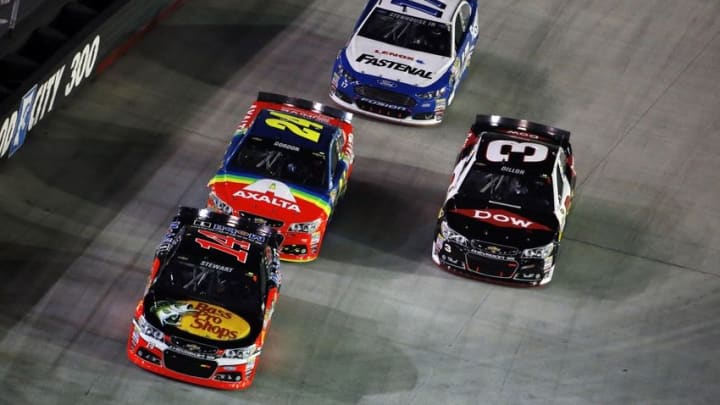Two of the more interesting questions in NASCAR have to do with the sport choosing not to retire numbers and the governing body not taking away wins when a driver fails post-race inspection.
In a 2016 interview with Motor Racing Network’s “NASCAR Live’’ NASCAR Chairman Brian France talked about various NASCAR topics that were later reported by NBC Sports. Two of the more interesting topics covered were why NASCAR chooses not to retire car numbers when drivers leave the sport and why NASCAR doesn’t take away wins from a driver when their cars fails post-race inspection.
Below are France’s responses to both questions.
Why Doesn’t NASCAR Retire Numbers?
When Richard Petty left NASCAR, Dale Earnhardt passed away and Jeff Gordon and Tony Stewart announced their retirements; NASCAR fans all asked whether or not NASCAR was going to retire their iconic numbers. While the argument to do so was strong in each scenario (sans Stewart), NASCAR ultimately decided not to take any action in all the scenarios. On MRN France explained why NASCAR doesn’t retire numbers.
"The teams build a lot of their value around that number. Richard Childress is a good example. He’s got a lot tied to Richard Childress Racing with the 3. We’re inclined not to do that."
Basically NASCAR’s stance here is that the numbers are the brand for the teams and NASCAR taking away those numbers could potentially hurt the teams and in the end the product.
Why Don’t Drivers Lose Wins For Failed Post-Race Inspections?
Another question that has stumped fans for some time is why NASCAR allows race winners who fail post-race inspection to keep their win. In theory, a winning car that fails post-race inspection most likely had an advantage of some sort during the race that might have assisted them in getting that win. As a result, the obvious choice of punishment here would seem to be taking that win away from them. France and NASCAR however do not feel that way.
"We prefer always to have when you leave the track to have witnessed the full race, including the winner. That remains our goal. We believe we can punish and deter. If there’s some infraction of significance – rarely happens but sometimes it does – we believe that without taking the win away, we can certainly punish someone effectively and we can deter it in the future from happening again. Sometime, by the way, these infractions are not intentional. That can happen frequently. A team will just have something that they missed by just a little bit and gets them out of balance in an infraction. It probably didn’t mean anything in terms of the performance. We wouldn’t want to take a win away in that case, but they made a mistake and we want to put the proper punishment forward. That’s how we’ve looked at it historically. We like how that feels and works."
Although the governing body doesn’t take away wins, depending on the reason for the failed inspection the punishment is sometimes comparable. If a driver fails post-race inspection for something that NASCAR deems was done with intent, the punishment that follows often will cost them championship points.
The invent of the Chase has made this situation more blurry though. Before the Chase and more specifically the newer version of the Chase, the loss of points in severe cases was almost the same as losing a win as far as the overall impact. With the current Chase format the points do not necessarily matter during the first 26 races because keeping that win will most likely secure a drivers spot in the Chase. Over the final 10 races a win secures a drivers spot in the next round of the Chase also making the loss of points not matter.
Must Read: Four Current NASCAR Tracks That Need To Start Over
The sports intention of the fans seeing the final result on the track is respectable but a race winner failing post-race inspection and keeping the win will never truly pass the eye test for many.
